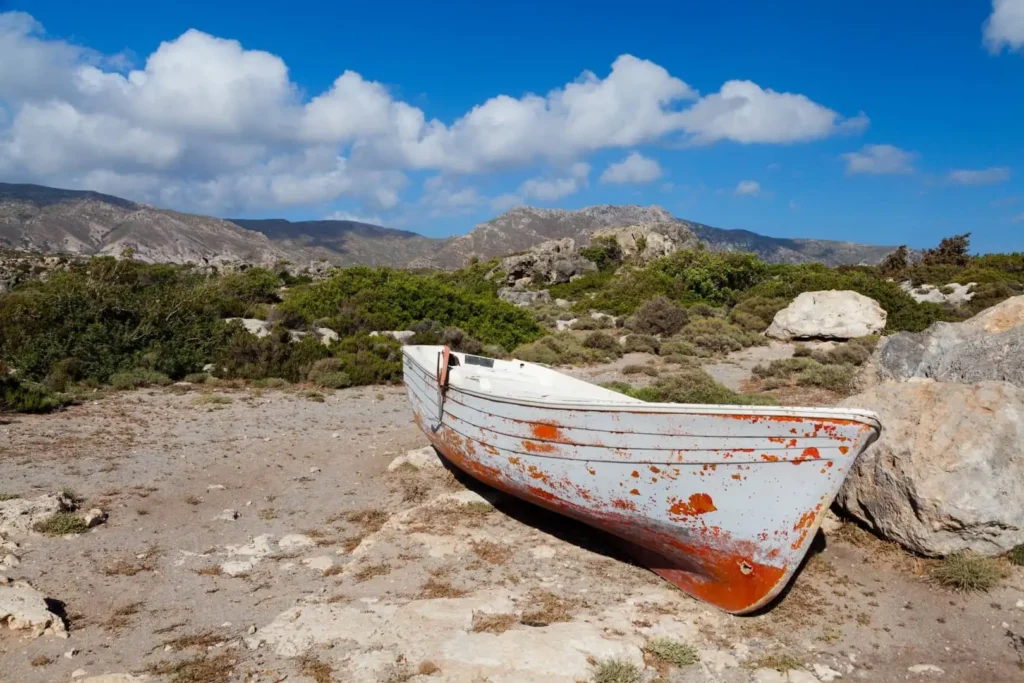A tourist port in Greece recently faced an environmental crisis when hundreds of thousands of dead fish washed ashore, alarming local residents, tourists, and environmentalists. The mass fish die-off has raised serious concerns about water quality, pollution, and the broader ecological health of the region. Here’s a closer look at what caused this catastrophic event, its potential impacts on the environment and tourism, and the urgent actions needed to address the situation.
What Caused the Mass Fish Die-Off?
The sudden appearance of dead fish in the port is likely the result of a combination of environmental and human factors. The most probable causes include:
- Oxygen Depletion: One of the primary causes of mass fish deaths is oxygen depletion in the water, often triggered by algal blooms. Excessive nutrients, such as nitrogen and phosphorus from agricultural runoff, sewage discharge, and industrial waste, can fuel the rapid growth of algae. When these algae die and decompose, they consume large amounts of oxygen, creating “dead zones” where fish and other marine life cannot survive.
- Pollution and Contamination: The port’s waters may have been contaminated by pollutants such as heavy metals, chemicals, or untreated sewage, all of which can be toxic to marine life. Ports are often hotspots for such pollutants due to nearby industrial activities, shipping, and inadequate waste management practices.
- Extreme Weather Conditions: Recent heatwaves and rising water temperatures in Greece have exacerbated environmental stresses on marine ecosystems. Warmer water holds less oxygen, further aggravating conditions for fish, particularly in enclosed or poorly circulated water bodies like ports.
- Disease Outbreaks: Another possible factor could be disease or parasitic outbreaks among the fish population, which can spread rapidly in warm, polluted waters.





Impacts on the Environment and Tourism
- Environmental Damage: The mass fish die-off poses a severe threat to the local marine ecosystem. The decay of large numbers of dead fish can further deplete oxygen levels, creating a vicious cycle that endangers other marine species and disrupts the ecological balance.
- Health Hazards: Decomposing fish can release harmful toxins and pathogens into the water, posing health risks to humans and pets who come into contact with the contaminated water. This could also impact local fisheries, as fish harvested from affected areas may be unsafe for consumption.
- Tourism Setback: The sight and smell of dead fish can deter tourists, harming the local economy that heavily relies on tourism. Greece’s ports and beaches are key attractions, and such environmental incidents can tarnish the country’s image as a pristine vacation destination.








Urgent Actions Needed
- Immediate Clean-Up Efforts: Authorities must act quickly to remove the dead fish from the water to prevent further pollution and health risks. This will help mitigate the environmental damage and restore the port to a usable state.
- Investigate and Address Pollution Sources: Identifying the sources of pollution and implementing stricter regulations on waste disposal, agricultural runoff, and industrial discharges are crucial steps in preventing future incidents. Improved water monitoring can help detect changes in water quality early.
- Enhance Water Circulation: Installing aeration systems or other methods to improve water circulation in enclosed areas can help maintain oxygen levels and reduce the likelihood of similar occurrences.
- Public Awareness and Education: Educating local communities, businesses, and tourists about the importance of environmental protection and proper waste management can play a key role in safeguarding marine ecosystems.
Conclusion
The mass die-off of fish in a Greek tourist port serves as a stark reminder of the fragility of marine ecosystems and the impacts of pollution and environmental mismanagement. Immediate action is needed to clean up the affected area and address the root causes to prevent such disasters in the future. Protecting Greece’s waters is not only vital for the environment but also essential for preserving the country’s reputation as a premier tourist destination.














